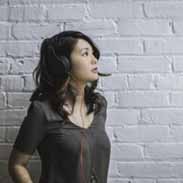Psychology Quiz 8 – Flashcards
Unlock all answers in this set
Unlock answersquestion
An extended family is a family that may include a. cousins. b. uncles. c. grandparents. d. All of the above
answer
d. All of the above
question
Psychosocially, one of the most important tasks of a middle-school child is to a. develop a mild temperament. b. learn how to get along with peers. c. learn how to obey parents and teachers. d. develop good study habits.
answer
b. learn how to get along with peers
question
The theorist associated with the six stages of moral reasoning is a. Piaget. b. Kohlberg. c. Erikson. d. Freud.
answer
b. Kohlberg
question
A child that grows up in a military family is usually lacking in a. educational opportunities. b. good health care. c. stability. d. socioeconomic status.
answer
c. stability
question
A characteristic of the culture of children may include a. spouting curses, accents, and slang. b. improving attitudes toward parents. c. making higher grades in school. d. excluding peers due to ethnic and racial prejudices.
answer
a. spouting curses, accents, and slang
question
The way in which a family works to meet the needs of its members is referred to as a. family structure. b. family stability. c. family function. d. extended family.
answer
c. family function
question
The ability to understand human interactions is called a. social cognition. b. effortful control. c. latency. d. resilience.
answer
a. social cognition
question
Rita, who is unpopular among her peers, frequently ridicules and antagonizes other children. Her behavior suggests that she is a( n) a. aggressive-rejected child. b. withdrawn-rejected child. c. neglected child. d. aggressive-withdrawn child.
answer
a. aggressive-rejected child
question
Research has shown that children develop their own standards of right and wrong, guided by a. peers only. b. parents only. c. culture only. d. peers, parents, and culture.
answer
d. peers, parents, and culture
question
Civic sense and virtue begins a. in middle childhood. b. prior to middle childhood. c. in adolescence. d. in adulthood.
answer
a. in middle childhood
question
The most common type of family structure for U.S. children between ages six and 11 is a. adoptive. b. blended. c. nuclear. d. single-parent.
answer
c. nuclear.
question
The legal and genetic connections among people living in the same household are known as a. family function. b. family structure. c. DNA. d. family dynamics.
answer
b. family structure
question
The tendency to assess one's own abilities by measuring them against those of other people, especially peers, is a. self-criticism. b. social comparison. c. self-concept. d. social evaluation.
answer
b. social comparison
question
According to Erikson, if eight-year-old Kristina does NOT solve the fourth stage of her psychosocial conflict, she will come to view herself as a. self-regulating. b. inferior. c. industrious. d. competent.
answer
b. inferior
question
The capacity to develop well by adapting positively to significant adversity is called a. self-esteem. b. stability. c. industry. d. resilience.
answer
d. resilience
question
Research on social acceptance among children indicates that a. all children are well liked at some point during their middle-school years. b. some children are well liked - others aren't - and those in both groups change over time. c. some children are well liked - others aren't - and once acceptance is determined, it remains constant. d. culture does not affect the social acceptance among children.
answer
b. some children are well liked - others aren't - and those in both groups change over time
question
According to your text, two factors that significantly interfere with family function in every nation are a. homosexuality and divorce. b. cohabitation and low income. c. low income and high conflict. d. financial stress and lack of marital commitment.
answer
c. low income and high conflict
question
Freud referred to middle childhood as the period of a. crisis. b. industry. c. inferiority. d. latency.
answer
d. latency
question
What is Erikson's fourth stage of psychosocial development? a. industry versus inferiority b. autonomy versus shame and doubt c. identity versus role confusion d. initiative versus guilt
answer
a. industry versus inferiority
question
Repeated, systematic efforts to inflict harm through physical, verbal, or social attack on a weaker person is the definition of a. intolerant social functioning. b. aggressive-rejection. c. harassment. d. bullying.
answer
d. bullying



